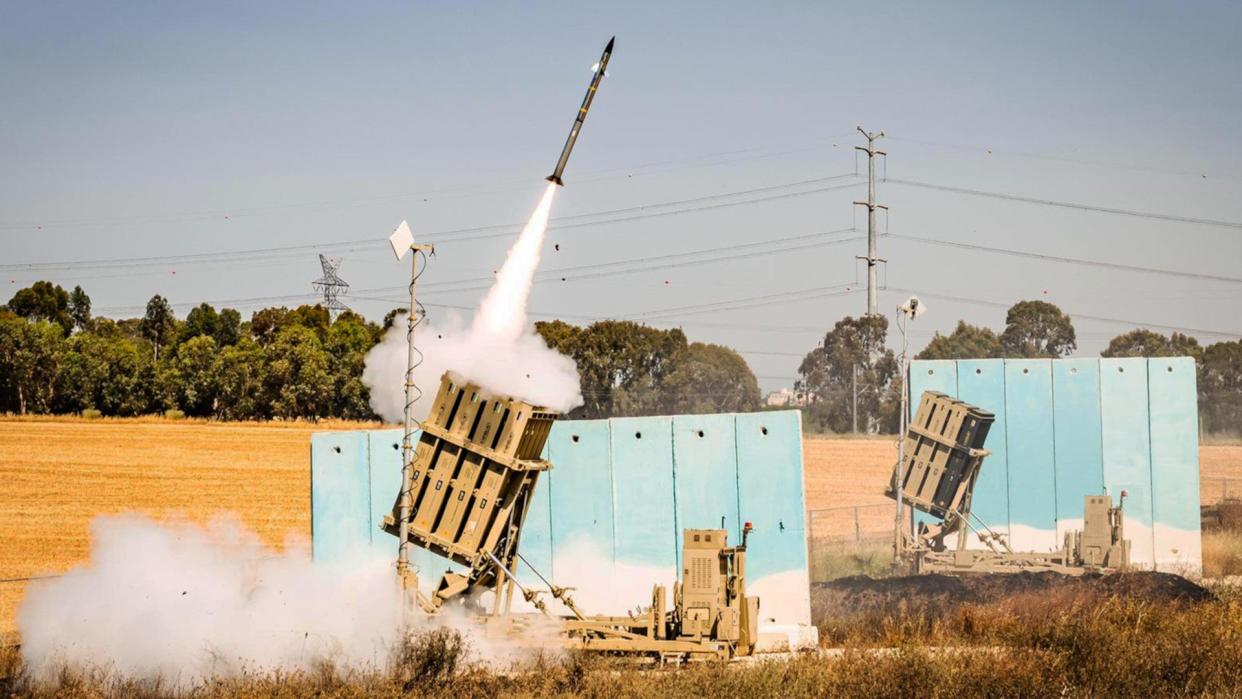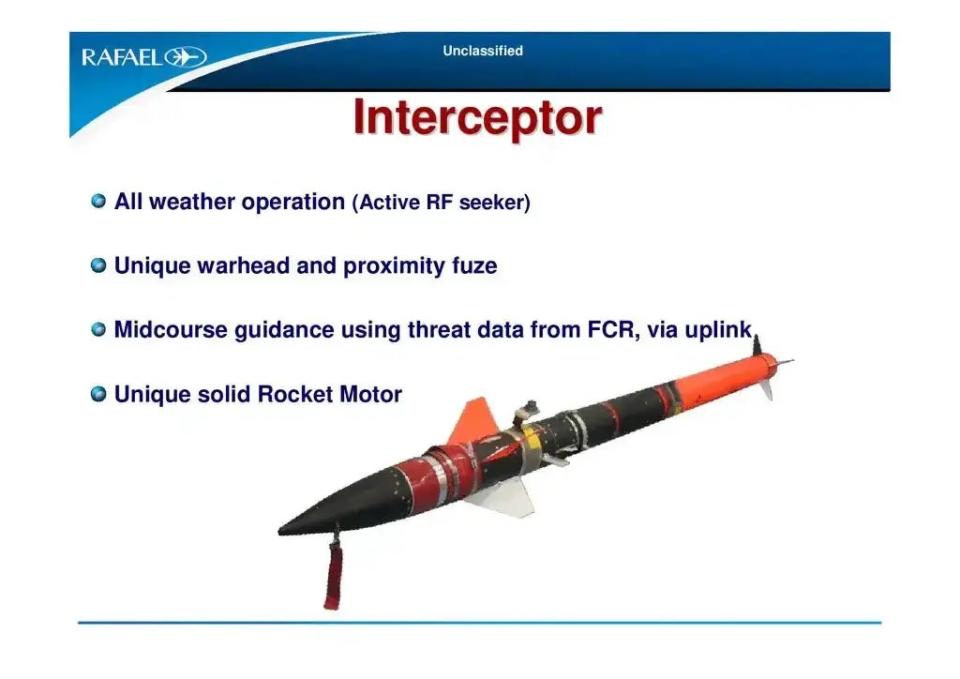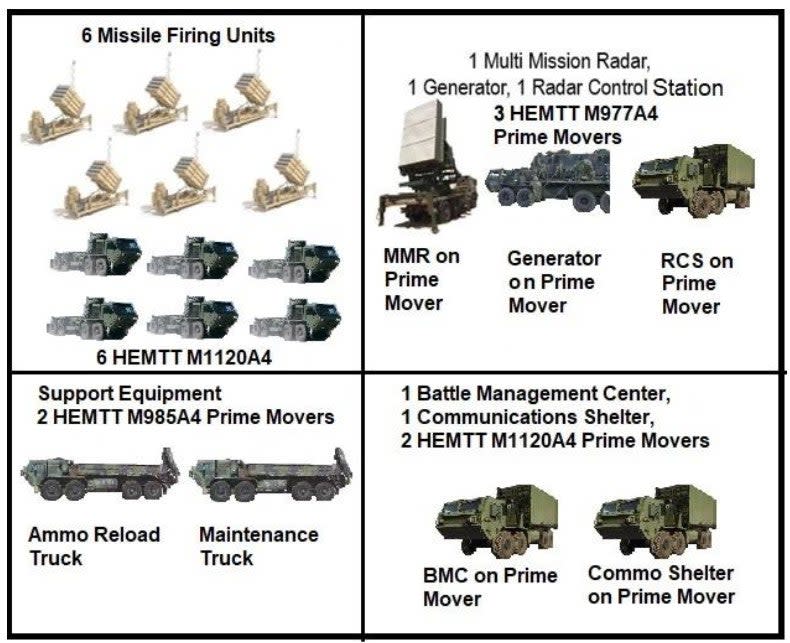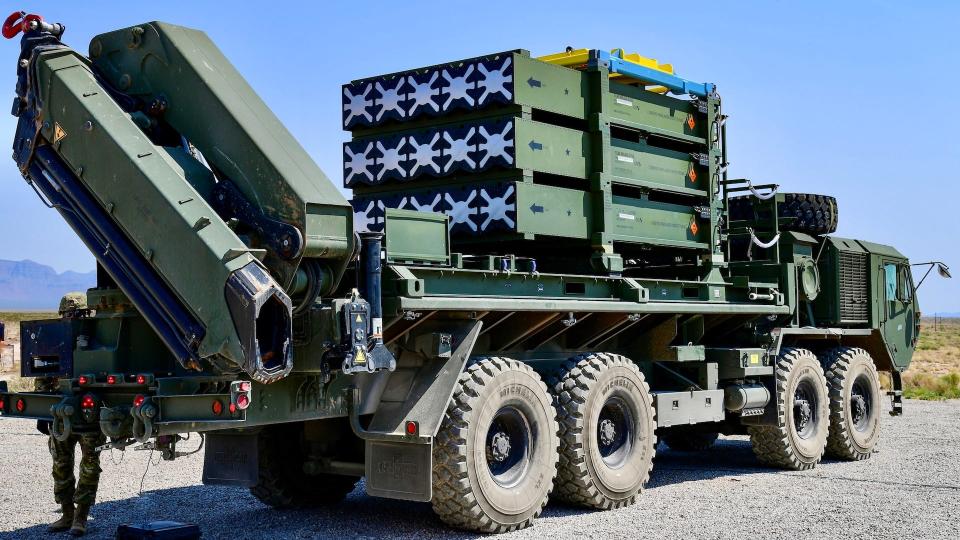U.S. Army To Give Its Only Two Iron Dome Batteries To Israel: Reports

The Pentagon is reportedly planning to send its only two full Iron Dome air defense systems to Israel — which the U.S. Army originally purchased from that country — to bolster Israeli air defense amid the ongoing conflict with Hamas.
Multiple news outlets reported this possibility yesterday, citing anonymous U.S. and Israeli officials, and a U.S. congressional aid. According to Reuters, officials from the Department of Defense informed members of Congress on Wednesday that it planned to lease the two Iron Dome systems back to Israel. Citing an unnamed congressional aid, the outlet further indicates that said transfer could come within a matter of days. At present, Israel has at least 10 Iron Dome batteries in operation.
https://www.youtube.com/watch?time_continue=2\u0026v=TfoIZ5RbyEw\u0026embeds_referring_euri=https%3A%2F%2Fwww.thedrive.com%2F\u0026source_ve_path=Mjg2NjIsMjM4NTE\u0026feature=emb_title
Israel's Iron Dome air defense system, which the country first declared operational in 2011, has principally been used to counter rockets, mortar rounds, and artillery shells. The system has also demonstrated capabilities against cruise missiles and drones.
A typical complete Iron Done system comprises multiple launch units, each of which is able to hold up to 20 Tamir interceptors at a time — manufactured by the Israeli company Rafael — along with radars to locate and track targets. In addition, Iron Dome systems also consist of a battle management and control unit.

Although it has not been reported where the U.S. Iron Dome systems would come from, it is assumed these are the two owned by the U.S. Army. Earlier this month, members of the U.S. Senate sent an open letter to U.S. Secretary of Defense Lloyd Austin calling for the service's pair of Iron Dome systems to be sent to Israel, and noted "that [they] have not been deployed and have no operational use inside the United States where they are currently stored."

The Army first announced its intentions to acquire Iron Dome to meet interim cruise missile defense requirements in August 2018. The service purchased the two systems from Israel in 2019, which were then delivered in late 2020 and early 2021. One was subsequently temporarily deployed to Guam to assess how the system might be used to deter China in the Indo-Pacific region.

The Army ultimately decided not to procure any additional Iron Dome systems, in part because of issues networking them together with its other air and missile defenses. It is now in the process of acquiring a domestically-developed system called Enduring Shield that is similar in general form and function to Iron Dome, but uses the AIM-9X Sidewinder as its effector.
Separately, the U.S. Marine Corps is currently looking to procure three batteries worth of service-specific Iron Dome systems, including 44 launchers and 1,840 Tamir interceptors in a purchase order that could cost as much as $200 million. The Marine Corps has been working towards acquiring a service-specific Iron Dome system, which it refers to as the Medium Range Intercept Capability (MRIC), since 2020. At present, the Marine Corps intends to assign an Iron Dome battery to each of the three Marine Littoral Regiments (MLR) that it is establishing.
The U.S. government invested heavily in the original development of the Iron Dome system and has continued to support the program through funding co-production and sustainment. U.S. defense contractor Raytheon now operates a joint venture company with Rafael in the United States that produces Tamir components of interceptors, which are then assembled in Israel. This is in addition to Rafael's own domestic capacity to produce Tamirs.
Between Fiscal Years 2011 and 2021, after it was declared operational, the United States contributed $1.6 billion to that country's air defense system. American authorities budgeted just over $1 billion in Fiscal Year 2022 in additional funding for Israel related to Iron Dome and another $80 million in Fiscal Year 2023, according to the Congressional Research Service (CRS).

That the U.S. could be on the verge of sending Israel Iron Dome batteries was neither confirmed nor denied by President Biden during his Oval Office address last night, ahead of his submission of an expansive $100 billion military aid package to Congress today — which includes aid for Israel. During his speech, the President promised to "make sure Iron Dome continues to guard the skies over Israel."
https://www.youtube.com/watch?v=b1ukaC9cSKQ
Up to this point, the Biden administration has repeated its commitment to furnishing the country with Iron Dome interceptors specifically. From as early as October 10, President Biden pledged to expedite the transfer of Tamir interceptors, the first of which arrived in Israel on October 12. During his short visit to Israel on October 18, the President committed to keeping Israel's existing Iron Dome systems "fully supplied" with interceptors.
https://twitter.com/CBSNews/status/1714657967235043488?s=20
Speaking at a press conference on October 19, U.S. Air Force Brig. Gen. Pat Ryder, the Pentagon's top spokesman, confirmed to reporters that the Tamir interceptors being delivered to Israel are drawn from left-over Army stocks. Ryder noted that the U.S. military has stocks of those interceptors stored domestically, as well as in Israel.
While Iron Dome has already been demonstrated in combat extensively, mass rocket attacks by Hamas during the ongoing conflict have proven difficult to counter. Iron Dome is not a perfect system, and, as The War Zone has indicated previously, it has the potential to be overwhelmed by large volumes of incoming rockets.
Back in May of 2021, for example, Palestinian militants fired more than 1,050 rockets at Israeli cities from the Gaza Strip in a period of less than two days. Despite the Israeli Defense Force being able to knock hundreds of those rockets out of the sky, the events underscored the limitations of Iron Dome, particularly when pitted against huge swathes of rockets.

In the context of the current crisis, additional Iron Dome batteries would be even more highly prized in Israel if the Lebanese militant group Hezbollah were to enter the war on a large scale. Hezbollah has a massive arsenal of rockets, as well as missiles and drones, as The War Zone has explored in depth previously. If the conflict were to widen, Israeli Iron Dome batteries would likely suffer attrition as they would be top targets, as well.
Israel's existing air defense batteries cannot be everywhere at once, either. Yesterday's events, for example — which saw USS Carney shooting down a trio of land-attack cruise missiles and drones launched by Iranian-backed Houthi militants in Yemen — illustrate how Israel faces potential incoming threats from multiple vectors, beyond Gaza and Lebanon.
If the U.S. does end up transferring Iron Dome batteries, which the Army currently has just sitting in storage, to Israel, it would give that country more air defense capacity — both in terms of total batteries and interceptors — to counter mass rocket attacks launched from different locations.
We’ll keep our eyes peeled for if, and when, the U.S.'s Iron Dome batteries are transferred to Israel.
Contact the author: oliver@thewarzone.com

